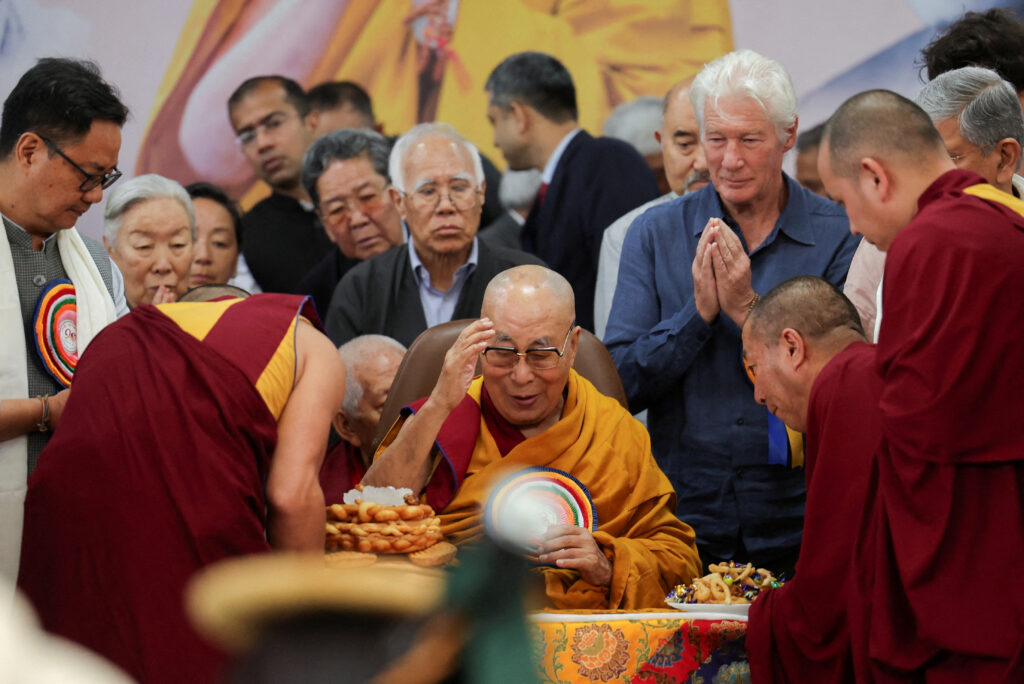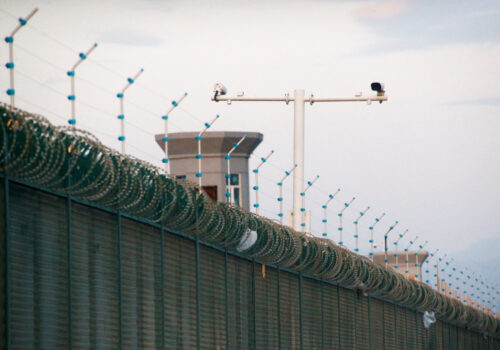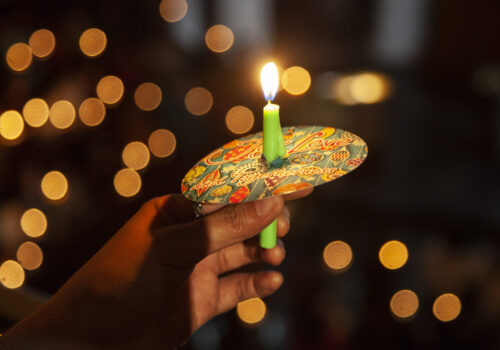On July 2, the Dalai Lama made official what many have long assumed: The institution of the Dalai Lamas will continue after his death. Using traditional methods, his organization, the Ganden Phodrang Trust, will have exclusive authority to identify, confirm, and appoint his reincarnation—the fifteenth Dalai Lama. Importantly, he has declared that the successor will be born in a free country—meaning neither Tibet nor any other region under Chinese control.
When that time comes, the United States and its partners and allies should continue to speak out, fund counter-disinformation efforts, and stand unequivocally behind the Dalai Lama’s succession plan. In doing so, the West will continue to defend not just one people’s faith, but also the principle that spiritual authority cannot be dictated by political power. It’s also in the United States’ geopolitical interest to defend the Dalai Lama’s succession from Chinese manipulation, as this can help prevent the spread of Chinese Communist Party’s (CCP’s) influence throughout the region’s large Buddhist populations.
For human dignity and democratic values
Supporting Tibetan religious freedom is a defense of human rights as outlined in Article 18 of the Universal Declaration of Human Rights. It is also a matter of Tibetans’ long-term development and well-being. Western support for religious freedom reinforces the global norms of human dignity and democratic values that are proven to be remarkable drivers for prosperity and stability. The historical lack of sufficient support for Tibet from the international community is an alarming example of what happens when religious and political repression goes unchecked—it erodes cultural identity, undermines community resilience, and enables authoritarian consolidation.
The Dalai Lama’s renewed focus on succession is playing out against the backdrop of the CCP’s continued cultural genocide of the Tibetan people. For the fifth year in a row, Freedom House has listed Tibet as scoring zero out of one hundred in its index, tied for the least free place on Earth. In the past several years, the CCP has gone to new lengths to Sinicize Tibetan culture, even officially renaming Tibet as “Xizang.” Nowhere is this suppression more acute than in the sphere of religious freedom.
As former supervising attorney for the Office of Tibet in Washington, DC, I’ve witnessed the extraordinary lengths Tibetans go to preserve their faith—from risking deadly crossings over the Himalayas to reach religious freedom in India, to building Tibetan charter schools in the United States—to ensure that their beliefs are passed on to the next generation. However, the crux of China’s strategy to curtail resistance to its religious persecution is its long-standing attempt to isolate Tibetans from the Dalai Lama.
As the living embodiment of Avalokiteśvara, the patron deity of Tibetan Buddhism, the Dalai Lama holds unparalleled religious and cultural significance for his followers. Yet many Tibetans are forbidden by the CCP from owning his image, uttering his name in public, or following his teachings. These acts can result in beatings, imprisonment, or worse. The CCP’s aggressive campaign is designed to repress and reshape Tibetan Buddhism under state control. Central to this effort is Beijing’s insistence on installing its own successor to the Dalai Lama.
A long history
Historically, Dalai Lamas were selected by a search committee composed of high-ranking monks and officials, including the Panchen Lama, a figure spiritually intertwined with the Dalai Lama who has historically played an important role in identifying and legitimizing the next Dalai Lama. This search committee would use traditional spiritual methods to identify the next reincarnation. Yet for more than two centuries, rulers of China have unsuccessfully sought to assert control over Tibetan reincarnations to exercise political control over Tibet and Tibetan Buddhist followers across the region. It wasn’t until well after the 1949 invasion of Tibet, however, that the CCP began institutionalizing control through regulatory mechanisms requiring state approval for recognizing reincarnate lamas.
In 1995, the Dalai Lama recognized Gedhun Choekyi Nyima, who was six years old at the time, as the eleventh Panchen Lama. Three days later, the boy was abducted by Chinese authorities and has not been seen since. In his place, Beijing appointed Gyaincain Norbu, a figure widely viewed by Tibetan Buddhists as illegitimate. However, this maneuver has allowed China to exert control over the lineage of the Panchen Lama.
A divided future
As a result of the CCP’s actions, it is all but certain there will be two competing fifteenth Dalai Lamas: one recognized by the Tibetan Buddhist community in exile, and another installed by Beijing. This duality is not just a theological matter but a geopolitical flashpoint. The CCP will likely use its appointed figure to exert spiritual influence over Tibetan Buddhists and reinforce its political claims to Tibet. While the current Dalai Lama has been an incredibly potent unifier for his people both inside and outside Tibet, struggling peacefully against the CCP’s Sinicization policies, the introduction of two competing Dalai Lamas will likely fracture Tibetan unity and risk a cultural identity crisis.
Inside Tibet, for example, the presence of a CCP-backed Dalai Lama may coerce some to accept Chinese authority, especially if that figure endorses Beijing’s claims. Outside Tibet, the global Tibetan Buddhist community is likely to reject such manipulation, deepening internal divisions. It also threatens broader global discord, as Tibetan Buddhists, Chinese Buddhists, and religious practitioners worldwide are drawn into this contested succession.
Anticipating this crisis, the United States has taken proactive steps. The Tibetan Policy and Support Act of 2020 and the Resolve Tibet Act of 2024 both establish that the United States will not recognize any Dalai Lama selected by Chinese authorities. These laws reaffirm that succession is a religious matter to be decided solely by the Tibetan Buddhist community, and they allocate funding to counter Chinese disinformation and support the Tibetan government-in-exile. They even contain provisions for the sanctioning of Chinese officials interfering in the succession of the Dalai Lama. But as Beijing ramps up its efforts to install its own Dalai Lama, the United States must continue its support for Tibetan Buddhists’ religious freedom.
Cohesive support
In the face of the CCP’s attempts to control the Dalai Lama’s succession, robust Western engagement will be vital. Religious freedom is not only a pillar of human dignity but a deterrent against authoritarian overreach. By supporting the Dalai Lama’s succession, the West will support a peaceful people who have resisted violent retaliation, even under profound oppression. Such support also undermines China’s religious and political overreach, discouraging other authoritarian regimes from co-opting religious figures for political purposes.
Backing the Dalai Lama’s chosen successor will also reinforce strategic partnerships, especially in Asia. India, which hosts the Tibetan exile community and is in a soft power competition with China over the claim to Buddhism, affirmed earlier this month that the Dalai Lama alone holds the authority to determine his successor. Similarly, countries with substantial Tibetan Buddhist communities, such as Nepal, Bhutan, and Mongolia, will be wary of a CCP-appointed religious figure holding significant sway over large portions of their populations. While these countries have so far remained largely silent after the Dalai Lama’s succession announcement, perhaps for diplomatic reasons, the time will likely come when they will look for partnerships and countermeasures.
Despite the extraordinary resilience of the Tibetan people, China’s decades-long campaign of propaganda and suppression continues to erode religious authenticity and community cohesion. Without strong, sustained international support, Beijing may succeed in redefining Tibet and Tibetan Buddhism under state authority. The United States has already taken important steps to come to the defense of Tibetan Buddhists’ religious freedom and to counter the CCP’s attempts to gain regional influence through religious repression. Washington and its allies and partners must not waver in these efforts; they must redouble their commitments.
Peter Arvo is a nonresident senior fellow with the Atlantic Council’s Freedom and Prosperity Center and the former supervising attorney with the Office of Tibet in Washington, DC.
Further reading
Tue, Nov 26, 2024
China’s atrocity crimes in Xinjiang are entering an even darker phase. The UN must act.
New Atlanticist By Rayhan Asat
The suffering of the Uyghur people continues in Xinjiang, and the United Nations has a responsibility to act on its recommendations.
Thu, Mar 28, 2024
The US can do more to protect religious freedom around the world
New Atlanticist By Jeffrey Cimmino
A recent report spotlights the breadth and depth of challenges to religious freedom across the globe. Washington must act.
Mon, Jun 9, 2025
China is carrying out ‘dress rehearsals’ to take Taiwan. Here’s how the US should respond.
New Atlanticist By Adam Kozloski
With China escalating its operational tempo in the Taiwan Strait, the United States must enhance its forward defense posture in the Indo-Pacific.
Image: Tibetan spiritual leader, the 14th Dalai Lama, is served food on his 90th birthday celebration at the Tsuglagkhang, also known as the Dalai Lama Temple complex, in the northern town of Dharamshala, India, July 6, 2025. REUTERS/Anushree Fadnavis.



